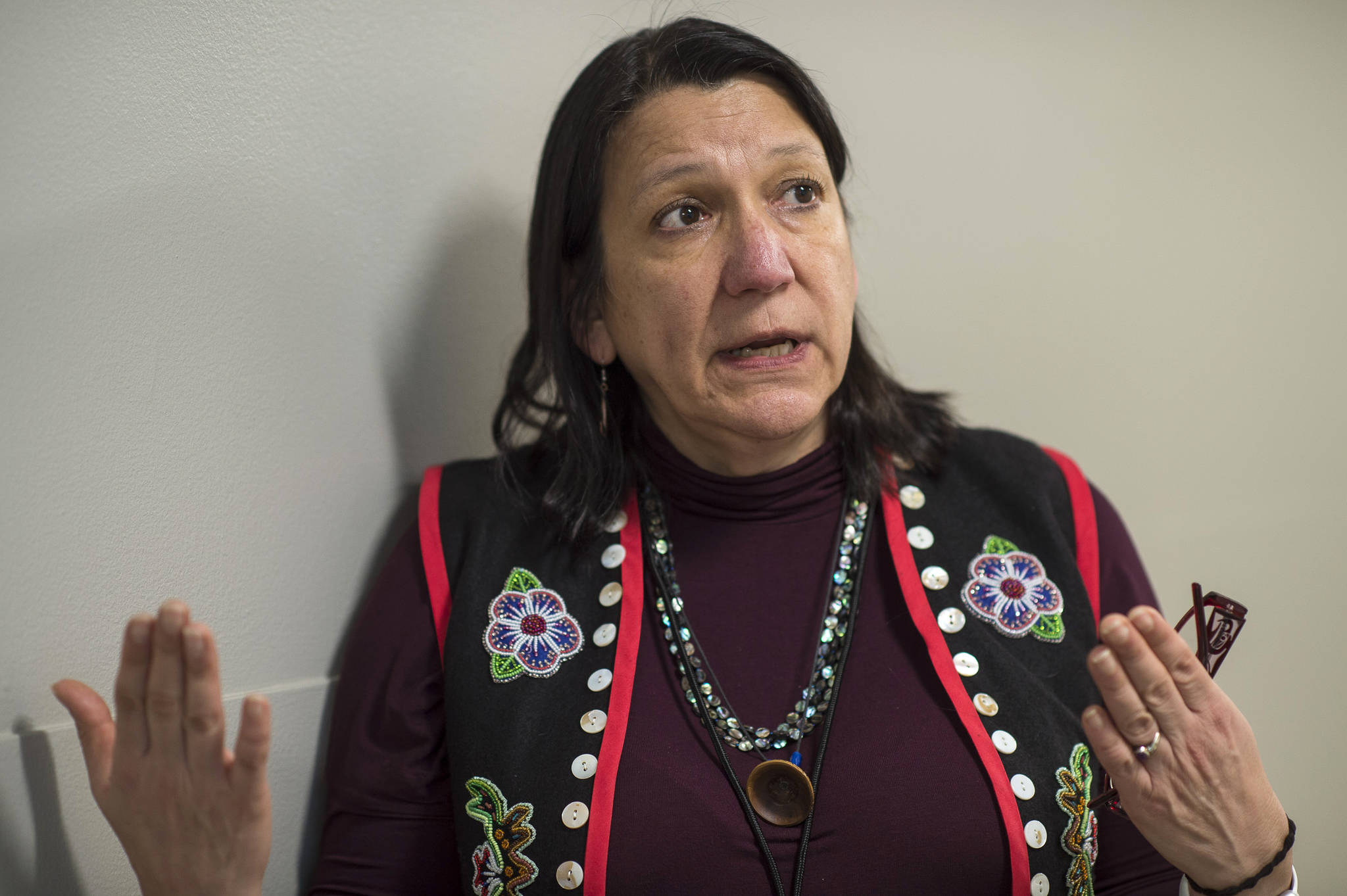In the village of Kasaan on Prince of Wales Island, the issues of missing and murdered Native women are much closer to home than the nearest courtroom.
Marina Rose Anderson, the vice president and administrative assistant for Organized Village of Kasaan, didn’t want to name any names without the permission of families, but said there have been many instances over the years of violence against women.
“A lot of people know about it,” Anderson said, “but I don’t know if a lot of people who are outside of the indigenous community have experienced it the way that we have inside of the indigenous community.”
Issues that occur close to home should be handled close to home, Anderson said, instead of people from outside the community making the legal decisions.
That idea of having local control over local issues brought Anderson and other tribal representatives from around Southeast to Juneau last week. The event, referred to as a Tribal Court Roundup, was meant to help villages throughout the region get their own tribal courts off the ground.
Juneau has a tribal court through Central Council Tlingit and Haida Indian Tribes of Alaska. It began operations in 2007, only handling child custody hearings. Over the years, the court has become more all-encompassing, and it now has jurisdiction over civil and criminal issues including child support, divorce, domestic violence and more.
[People of Juneau: Alaska Native judge runs Tribal Court with comforting, serious demeanor]
People from other villages are looking to have something similar, and met in Juneau last week to brainstorm how best to do that. There were representatives from Hoonah, Kake, Kasaan, Yakutat and other communities who shared ideas and experiences at the conference.
CCTHITA Tribal Court Judge Debra O’Gara said the Bureau of Indian Affairs is able to supply money to tribes to form tribal courts, but the first step is to figure out which path to take when it comes to a justice system. A traditional courtroom like Juneau has might not work for some communities, O’Gara said. Maybe a panel of elders would be best for one place, while a setup like the Kake Circle Peacemaking Program could work for others. That program incorporates Tlingit culture into heal relationships and mediate disputes.
Some, such as Kasaan, have started working on a local justice system but are in the early stages. Anderson said the Organized Village of Kasaan has hired a victims’ advocate who serves as a liaison between victims of violence and services in town. Anderson and others in attendance talked about how taking care of the victim of a crime sometimes gets lost in the process of punishing a wrongdoer. Ideally, a community court would focus on both the victim and the wrongdoer, she said.
CCTHITA Tribal Court Chief Justice Michelle Demmert said it’s time for tribes to take legal issues into their own hands and handle them on their own territory.
“The state system’s really failed us in many ways,” Demmert said, “whether it’s criminal, civil, child welfare, domestic violence. That’s because you’re taking local issues and having them go out to a hub city to serve time, to see parole, to see the judge.”
[Sitkan testifies in DC about missing, murdered Alaska Native women]
A common thread that wove through conversations with representatives from around Southeast: sovereignty. Anderson said her main goal as a tribal administrator is to make the tribe as independent as possible. Hoonah Indian Association Tribal Administrator Robert Starbard was on the same wavelength.
“I think for us, the primary importance of a tribal court is that it gives additional legitimacy and eligibility to our sovereignty,” Starbard said. “You cannot be sovereign if you cannot exercise control over what happens with your ordinances and laws. Tribal court is a mechanism that allows us to do that.”
Starbard said Hoonah is very early in the process of setting up a form of tribal court. He said there’s a possibility Hoonah sets up its court as a satellite court of the CCTHITA one, sharing resources and modeling itself off what that court has done. Starbard said Hoonah has a huge caseload when it comes to child welfare cases, and having some kind of local judicial system could resolve those cases more effectively.
Larry Bemis and Cathy Bremner from the Yakutat Tlingit Tribe were in a similar boat. Bremner, the vice president, and Bemis, a council member, said they’re thinking about taking a similar path to what Starbard was envisioning. Having an “inter-tribal court” might be a good starting point for them, they said, and could get them up and running sooner rather than later.
O’Gara pushed that point at the conference, saying that installing tribal courts throughout Southeast is an attainable goal if people take the initiative to get started.
“We don’t have time to wait any longer,” O’Gara said. “We have to do it now.”
• Contact reporter Alex McCarthy at 523-2271 or amccarthy@juneauempire.com. Follow him on Twitter at @akmccarthy.

